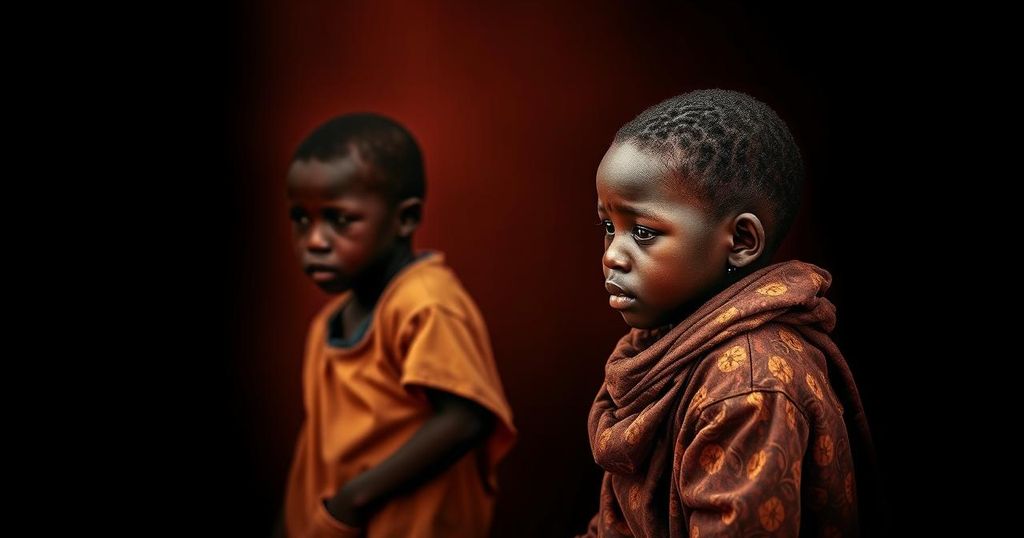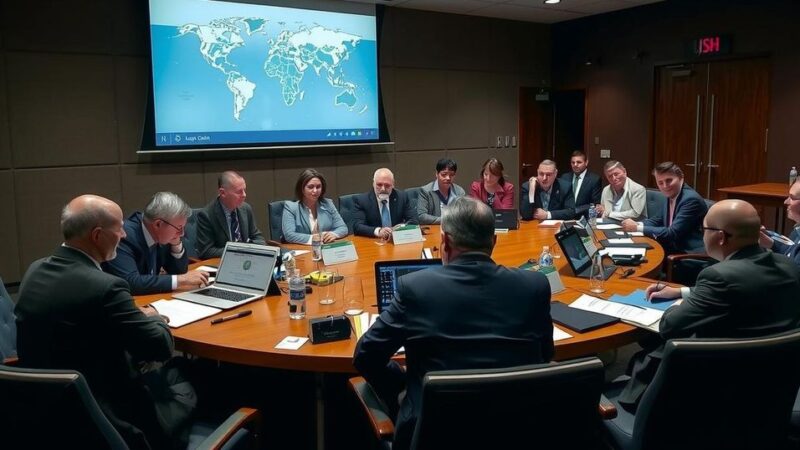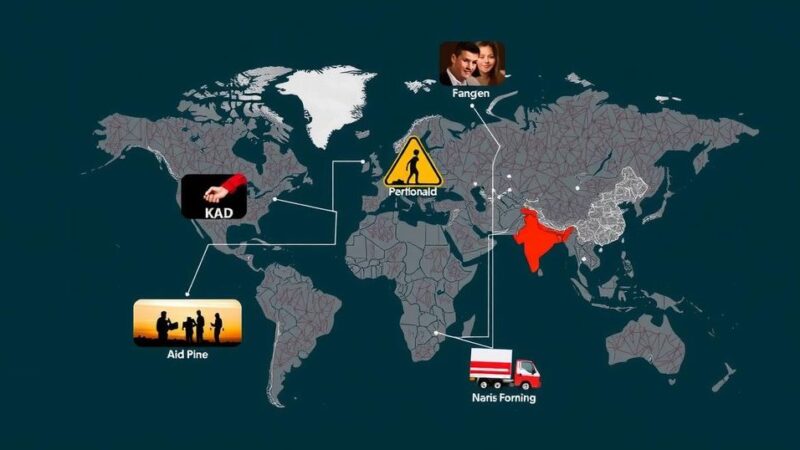The ongoing conflict in Sudan, stemming from a power struggle, has led to a humanitarian crisis affecting millions of children. Close to five million are displaced, facing severe malnutrition and lack of access to education. The UN has reported that the war has resulted in significant violence and suffering, with children’s rights being severely violated. Amid these dire conditions, humanitarian organizations are calling for urgent international support to aid affected populations, with only half of the required funding received so far.
In Sudan, the ongoing conflict has precipitated a humanitarian crisis of staggering proportions, particularly affecting the nation’s children. Since the outbreak of fighting 18 months ago, close to five million children have been displaced, with many more facing significant threats to their basic survival. Amina, a refugee whose son was tragically killed, represents the harrowing experiences of countless families. The war, which erupted amid a power struggle between the Sudanese army and the paramilitary Rapid Support Forces, has wreaked havoc across the nation, particularly in regions such as Darfur, where violence has intensified. Reports indicate that around 15,000 individuals have lost their lives in Darfur alone, with a staggering eight million people displaced within Sudan and over two million seeking refuge in neighboring countries such as Chad, Egypt, and South Sudan. The impact of this war on children is especially acute. Not only are they suffering from violence and displacement, but they also face severe malnutrition and limited access to essential services like education and healthcare. Currently, an estimated 25 million Sudanese citizens, over half the population, are experiencing acute hunger, and it is projected that 730,000 children may develop severe acute malnutrition this year. As families flee to refugee camps, the precarious conditions often lead to malnutrition and illness exacerbated by limited resources. Moreover, the war has disrupted education for more than 90% of school-age children in Sudan, leaving many with no opportunity to pursue formal schooling. Reports indicate that schools have not only been targeted in attacks but have also been occupied or repurposed for military use. As a result, young individuals like Amir, a once-promising computer science student, find themselves languishing in camps with no access to the education they desperately seek, lamenting the loss of their futures. The humanitarian community has called for urgent international support to address the escalating crisis and to facilitate the provision of aid to affected populations. Humanitarian organizations stress the need for a ceasefire and safe access for aid delivery, underscoring that without it, the future of an entire generation of Sudanese children remains perilous. Children are incredibly resilient, but without adequate support, the long-term consequences of this conflict could lead to a lost generation, vulnerable to exploitation, violence, and ongoing cycles of hunger and despair. The UN is actively seeking $2.7 billion in aid, but as of yet, only half of that amount has been pledged, creating an urgent need for international donors to step forward and assist in this critical humanitarian effort.
The humanitarian crisis in Sudan stems from a protracted conflict that began amid a power struggle following the ousting of long-time dictator Omar Al-Bashir in 2019. As hostilities escalated between the Sudanese army and the paramilitary Rapid Support Forces in April 2022, the resulting violence has led to one of the largest child displacement crises in the world. Reports detail atrocities committed against civilians, particularly children, who now face the dual threats of famine and violence as they seek refuge either within Sudan or in surrounding nations. This situation is exacerbated by a lack of international aid, logistical obstacles due to the ongoing fighting, and a severe food crisis that puts millions at risk of severe malnutrition.
The ongoing conflict in Sudan presents a grave humanitarian crisis, particularly for children who are left vulnerable and marginalized in the chaos. With millions displaced and facing immense risks such as malnutrition, violence, and lack of education, the urgent need for international intervention and support cannot be overstressed. The voices of those affected, like Amina and Amir, highlight the heartbreaking reality of a possible lost generation. Without immediate action and funding, the future of Sudan’s children remains uncertain and perilous, further jeopardizing the social fabric and stability of the region.
Original Source: www.middleeastmonitor.com






